This is our list of the signers of The Declaration of Independence. Thus far we have visited (or attempted to visit)
all 56 signers gravesites. Some of the signers are buried on private property and are not accessible to the public.
An excellent source of information about the Signers can be found at the following National Park Service website: Signers of the Declaration of Independence
An excellent source of information about the Signers can be found at the following National Park Service website: Signers of the Declaration of Independence
Name
DOB - DOD
Burial Location
Visited
* Gravesite on Private Property
October 30 [O.S. October 19] 1735 – July 4, 1826
Home:
Quincy, Massachusetts
Education:
Harvard University
Profession:
President, Vice President, Minister to the United Kingdom and the
Netherlands, Delegate to Continental Congress from Massachusetts
Info:
Adams was born in 1735 in Braintree, Massachusetts, and pursued a career in law after graduating from Harvard. His opposition to British policies, like the Stamp Act, propelled him into the revolutionary movement. Notably, he defended British soldiers in the Boston Massacre trials, showcasing his commitment to the rule of law. His career was marked by his advocacy for independence and effective leadership in the Continental Congress.
Following his significant contributions to the founding of the United States, Adams spent over a decade in Europe as a diplomat, playing a critical role in securing Dutch recognition and loans, as well as helping negotiate the Treaty of Paris, which ended the Revolutionary War. His later years were spent in politics and diplomacy, culminating in his presidency, where he navigated complex international tensions and internal party disputes. Adams retired to Quincy, Massachusetts, where he witnessed his son, John Quincy Adams, ascend to the presidency.
John Adams, often called the "Atlas of American Independence," played a pivotal role in initiating the American Revolution through his writings and political activities. He helped draft the Declaration of Independence and was a key figure in its passage through the Continental Congress. Adams's influence extended beyond the revolution, as he later served as the first Vice President and second President of the United States.
Following his significant contributions to the founding of the United States, Adams spent over a decade in Europe as a diplomat, playing a critical role in securing Dutch recognition and loans, as well as helping negotiate the Treaty of Paris, which ended the Revolutionary War. His later years were spent in politics and diplomacy, culminating in his presidency, where he navigated complex international tensions and internal party disputes. Adams retired to Quincy, Massachusetts, where he witnessed his son, John Quincy Adams, ascend to the presidency.
John Adams, often called the "Atlas of American Independence," played a pivotal role in initiating the American Revolution through his writings and political activities. He helped draft the Declaration of Independence and was a key figure in its passage through the Continental Congress. Adams's influence extended beyond the revolution, as he later served as the first Vice President and second President of the United States.
Samuel Adams
27 Sep 1722 – 2 Oct 1803
Home:
Boston, Massachusetts
Education:
Harvard University
Profession:
Governor of Massachusetts, Lt. Gov. of Mass., State Senator of Mass.,
Delegate to Continental Congress from Mass., Clerk of House of Representatives of Mass.
Info:
Samuel Adams, a key figure in the American Revolution, was born in Boston in 1722. Initially, he struggled in various jobs and faced financial difficulties but found his passion in politics, becoming a leader in Massachusetts's resistance against British control. His political activities and writings significantly shaped the early revolutionary movements.
Adams was instrumental in protesting against the Sugar and Stamp Acts and later the Townshend Acts, helping to organize resistance like the Boston Tea Party. His efforts contributed to the unity among the colonies against British policies, advocating for collective action through the creation of committees of correspondence and involvement in the Continental Congress.
Beyond his revolutionary contributions, Adams held various political roles in Massachusetts, serving as a state senator and governor. He remained influential in promoting republican values and governance until his death in 1803. Adams's legacy as a foundational American patriot is marked by his relentless advocacy for independence and democratic principles.
Adams was instrumental in protesting against the Sugar and Stamp Acts and later the Townshend Acts, helping to organize resistance like the Boston Tea Party. His efforts contributed to the unity among the colonies against British policies, advocating for collective action through the creation of committees of correspondence and involvement in the Continental Congress.
Beyond his revolutionary contributions, Adams held various political roles in Massachusetts, serving as a state senator and governor. He remained influential in promoting republican values and governance until his death in 1803. Adams's legacy as a foundational American patriot is marked by his relentless advocacy for independence and democratic principles.
Josiah Bartlett
21 Nov 1729 – 19 May 1795
Home:
Kingston, NH
Education:
Profession:
Delegate to Continental Congress, Signed Articles of Confederation, State
court Judge, Member of Federal constitutional convention, Elected Governor of New Hampshire
Info:
Josiah Bartlett, a prominent figure during the American Revolution, began his career in medicine in Kingston, New Hampshire, and quickly gained recognition. As tensions rose, he actively joined the revolutionary cause, holding various local and state positions and contributing significantly as a delegate to the Continental Congress.
During his service, Bartlett faced personal challenges, such as his home being burned down, likely by Loyalists. Despite such setbacks, he continued to contribute, serving in Congress and supporting military efforts, notably during the Battle of Bennington which was pivotal in the Revolutionary War.
After his national service, Bartlett remained active in New Hampshire politics, serving as a judge and eventually as the governor. He also continued to contribute to the field of medicine, founding the New Hampshire Medical Society. Bartlett retired due to ill health and passed away in 1795 in Kingston.
During his service, Bartlett faced personal challenges, such as his home being burned down, likely by Loyalists. Despite such setbacks, he continued to contribute, serving in Congress and supporting military efforts, notably during the Battle of Bennington which was pivotal in the Revolutionary War.
After his national service, Bartlett remained active in New Hampshire politics, serving as a judge and eventually as the governor. He also continued to contribute to the field of medicine, founding the New Hampshire Medical Society. Bartlett retired due to ill health and passed away in 1795 in Kingston.
Carter Braxton
10 Sep 1736 – 10 Oct 1797
Home:
King William, VA
Education:
College of William and Mary
Profession:
Farmer, Virginia House of Burgesses, Delegate to the Continental Congress,
Member, Virginia patriot's Committee of Safety, Signer of the Declaration of Independence
Grave Site:
His grave is located at Chericoke, Carter Family Estate which is private property.
Info:
Before the American Revolution, Carter Braxton was possessed of a considerable fortune through
inheritance and favorable marriages. While still in his teens he inherited the family estate, which
included a flourishing Virginia tobacco plantation, upon the death of his father. He married a wealthy
heiress who died when he was just 21, and within a few years he had remarried, this time to the daughter
of the Receiver of Customs in Virginia for the King. As a delegate representing Virginia in the
Continental Congress in 1776, he was one of the minority of delegates reluctant to support an American
declaration of independence, a move which he viewed at the time as too dangerous.
Braxton invested his wealth in commercial enterprises, particularly shipping, and he endured severe financial reversals during the Revolutionary War when many of the ships in which he held interest were either appropriated by the British government (because they were British-flagged) or were sunk or captured by the British. He was not personally targeted for ruin because he had signed the Declaration of Independence, however; he suffered grievous financial losses because most of his wealth was tied up in shipping, “that trade which is so essential to the prosecution of the War” and which was, therefore, a prime military target for the British. Even if he hadn’t signed the Declaration of Independence, Braxton’s ships would have been casualties of the war just the same.
Although Braxton did lose property during the war and had to sell off assets (primarily landholdings) to cover the debts incurred by the loss of his ships, he recouped much of that money after the war but subsequently lost it again through his own ill-advised business dealings. His fortune was considerably diminished in his later years, but he did not by any stretch of the imagination “die in rags.” 2
Braxton invested his wealth in commercial enterprises, particularly shipping, and he endured severe financial reversals during the Revolutionary War when many of the ships in which he held interest were either appropriated by the British government (because they were British-flagged) or were sunk or captured by the British. He was not personally targeted for ruin because he had signed the Declaration of Independence, however; he suffered grievous financial losses because most of his wealth was tied up in shipping, “that trade which is so essential to the prosecution of the War” and which was, therefore, a prime military target for the British. Even if he hadn’t signed the Declaration of Independence, Braxton’s ships would have been casualties of the war just the same.
Although Braxton did lose property during the war and had to sell off assets (primarily landholdings) to cover the debts incurred by the loss of his ships, he recouped much of that money after the war but subsequently lost it again through his own ill-advised business dealings. His fortune was considerably diminished in his later years, but he did not by any stretch of the imagination “die in rags.” 2
Charles Carroll
19 Sep 1737 – 14 Nov 1832
Home:
Ellicott City, MD
Education:
Jesuits' College at St. Omar, France; seminary in Rheims; Graduate,
College of Louis the Grande; Bourges; studies in Paris; Studies, apprenticeship in London. (Scholar,
Lawyer)
Profession:
Member of first Maryland Committee of Safety, Provincial Congress, Delayed
member of Continental Congress, August, Signed Declaration of Independence; Appointed to board of War,
Elected to Senate of Maryland, Elected U.S. Senator from Maryland, returned to Maryland Senate
Grave Site:
The cemetery and Doughoregan Manor are privately owned and Posted. We
drove to entrance and didn't enter or take a photo in August 2021.
Info:
Charles Carroll, born in 1737 in Annapolis, was one of the wealthiest men in America and the only Roman Catholic signer of the Declaration. Educated in Europe, he returned to Maryland, where he managed a large estate and initially remained out of the public eye due to religious restrictions.
Carroll emerged as a political figure in 1773, advocating for reform and engaging in Maryland's revolutionary activities. He played a crucial role in rallying Maryland's support for independence in 1776 alongside Benjamin Franklin and others.
After the revolution, Carroll served in both state and national legislatures, promoting federalism and investing in infrastructure projects like canals and railroads. He retired from public life in 1804, focusing on his business interests until his death in 1832 at age 95, revered as the last surviving signer of the Declaration.
Carroll emerged as a political figure in 1773, advocating for reform and engaging in Maryland's revolutionary activities. He played a crucial role in rallying Maryland's support for independence in 1776 alongside Benjamin Franklin and others.
After the revolution, Carroll served in both state and national legislatures, promoting federalism and investing in infrastructure projects like canals and railroads. He retired from public life in 1804, focusing on his business interests until his death in 1832 at age 95, revered as the last surviving signer of the Declaration.
Samuel Chase
17 Apr 1741 – 19 Jun 1811
Home:
Baltimore, MD
Education:
Classical education in Law, Baltimore
Profession:
Practiced Law in Annapolis; Elected to Continental Congress, Chief Justice
of Criminal Court, district of Baltimore; Chief Justice, state of Maryland, Justice, US Supreme Court
Grave Site:
The Old St. Paul Cemetery was locked at the time of our visit in August
2021.
Info:
Samuel Chase, born in 1741 in Maryland, was an influential figure in the American Revolution, actively opposing British policies from his early career in law. He became involved in revolutionary activities, including the Sons of Liberty, and played a pivotal role in rallying Maryland to support independence in 1776.
Chase's political and judicial career was marked by controversy, particularly during his time in Congress, where he was involved in profiteering scandals. Despite this, he contributed significantly to Maryland politics and law, serving in various judicial capacities before being appointed to the U.S. Supreme Court in 1796.
As a Supreme Court Justice, Chase's inability to separate his political views from his judicial duties led to impeachment proceedings against him in 1805, though he was acquitted. He served on the court until his death in 1811, leaving a complex legacy of legal influence and political activism.
Chase's political and judicial career was marked by controversy, particularly during his time in Congress, where he was involved in profiteering scandals. Despite this, he contributed significantly to Maryland politics and law, serving in various judicial capacities before being appointed to the U.S. Supreme Court in 1796.
As a Supreme Court Justice, Chase's inability to separate his political views from his judicial duties led to impeachment proceedings against him in 1805, though he was acquitted. He served on the court until his death in 1811, leaving a complex legacy of legal influence and political activism.
Abraham Clark
15 Feb 1726 – 15 Sep 1794
Home:
Rahway, NJ
Education:
Self-taught, Surveying, Law
Profession:
Land attorney; High Sheriff of Essex County, NJ., Member of New Jersey
Provincial Congress; Elected to the Continental Congress
Info:
Abraham Clark, a self-taught lawyer and politician from New Jersey, became a signer of the Declaration of Independence. Born in 1726, he was primarily engaged in surveying and providing legal advice before taking a more active role in revolutionary activities by 1776.
During the American Revolution, despite his poor health and personal concerns for his family, Clark served continuously in the Continental Congress and sometimes concurrently in the State legislature. His commitment was tested further when his sons were captured and imprisoned by the British.
After the war, Clark continued to serve in various political roles, advocating for the rights of states and the inclusion of the Bill of Rights in the U.S. Constitution. He died in 1794 after a long career dedicated to public service and political reform.
During the American Revolution, despite his poor health and personal concerns for his family, Clark served continuously in the Continental Congress and sometimes concurrently in the State legislature. His commitment was tested further when his sons were captured and imprisoned by the British.
After the war, Clark continued to serve in various political roles, advocating for the rights of states and the inclusion of the Bill of Rights in the U.S. Constitution. He died in 1794 after a long career dedicated to public service and political reform.
George Clymer
16 Mar 1739 – 23 Jan 1813
Home:
Morrisville, PA
Education:
Private
Profession:
Merchant, Member of the Philadelphia Committee of Safety, Elected to the
Continental Congress, Member of Pennsylvania Legislature, Revenue Officer, Federal Indian Agent, First
president of: Philadelphia Bank, Philadelphia Academy of Fine Arts, vice-president of the Philadelphia
Agricultural Society
Info:
George Clymer, an influential Philadelphia merchant, orphaned young and raised by a wealthy uncle, became deeply involved in early American politics and commerce. His early business acumen, developed as he progressed from a clerk to partner in his uncle's firm, helped him navigate and oppose British economic restrictions, fostering his revolutionary sentiments.
Active in the political scene, Clymer held positions as a Continental treasurer and a delegate to the Continental Congress, where he contributed mainly through committee work focused on finance and military matters. His dedication saw him personally funding the revolutionary cause, underscoring his commitment to American independence.
Following his political career, Clymer continued to influence American society, engaging in various community projects and serving in multiple public offices until his retirement. He passed away in 1813, leaving a legacy marked by both political and civic contributions.
Active in the political scene, Clymer held positions as a Continental treasurer and a delegate to the Continental Congress, where he contributed mainly through committee work focused on finance and military matters. His dedication saw him personally funding the revolutionary cause, underscoring his commitment to American independence.
Following his political career, Clymer continued to influence American society, engaging in various community projects and serving in multiple public offices until his retirement. He passed away in 1813, leaving a legacy marked by both political and civic contributions.
William B. Ellery
22 Dec 1727 – 15 Feb 1820
Home:
Newport, RI
Education:
Harvard College
Profession:
Elected to Continental Congress, Judge, Supreme Court of Rhode Island,
First Collector, the port of Newport
Info:
William Ellery, born in 1727 in Newport, Rhode Island, evolved from multiple careers to a prominent political figure by his mid-life. After attending Harvard, he dabbled in various professions before settling into law by 1770. His active participation in local patriotic efforts led to his election to the Continental Congress by 1776.
In Congress, Ellery contributed to naval and commercial matters and entertained peers with his wit. Despite personal losses during the British occupation of Newport, which destroyed his property, he refused a judicial position to stay in Congress, leveraging his seniority and influence.
Later, Ellery served as the commissioner of the Continental Loan Office and customs collector for Newport under President Washington. His adept management in these roles, despite earlier financial setbacks, underscored his lasting commitment to public service. Ellery remained active in scholarly and public affairs until his death in 1820 at the age of 92.
In Congress, Ellery contributed to naval and commercial matters and entertained peers with his wit. Despite personal losses during the British occupation of Newport, which destroyed his property, he refused a judicial position to stay in Congress, leveraging his seniority and influence.
Later, Ellery served as the commissioner of the Continental Loan Office and customs collector for Newport under President Washington. His adept management in these roles, despite earlier financial setbacks, underscored his lasting commitment to public service. Ellery remained active in scholarly and public affairs until his death in 1820 at the age of 92.
Gen. William Floyd
17 Dec 1734 – 4 Aug 1821
Home:
Westernville, NY
Education:
Profession:
Farmer, Soldier, Member of Continental Congress, Member of Congress, State
Senator, New York
Info:
William Floyd, born in 1734 on Long Island, New York, was a significant figure during the American Revolution, despite his primarily local influence. He managed his family's large estate from a young age and became deeply involved in local politics and militia before joining the Continental Congress. During the war, British forces occupied his home, and his family endured years of hardship and displacement.
Floyd's post-war life continued in public service, including terms in the New York State Senate and the U.S. Congress. He supported the Federal Constitution and held several presidential elector positions. Later, he ventured into western land investments, which led him to relocate and develop new properties in central New York.
In his later years, Floyd settled on his new lands, founding a community and continuing his involvement in local affairs until his death in 1821. His life journey from a colonial landowner to a national political figure and pioneering settler showcases the breadth of personal and professional challenges faced by the signers of the Declaration.
Floyd's post-war life continued in public service, including terms in the New York State Senate and the U.S. Congress. He supported the Federal Constitution and held several presidential elector positions. Later, he ventured into western land investments, which led him to relocate and develop new properties in central New York.
In his later years, Floyd settled on his new lands, founding a community and continuing his involvement in local affairs until his death in 1821. His life journey from a colonial landowner to a national political figure and pioneering settler showcases the breadth of personal and professional challenges faced by the signers of the Declaration.
The Gen. William Floyd House is a historic house on Main Street at Gifford Hill Road in Westernville, New York. Built in 1803, it was the last home of Founding Father William Floyd (1734–1821), a signer of the Declaration of Independence, and a driving force in the settlement of the area. It was declared a National Historic Landmark in 1971. The house is a private residence, and is not normally open to the public.
Benjamin Franklin
17 Jan 1706 – 17 Apr 1790
Home:
Philadelphia, PA
Education:
Self-taught, apprenticed as a printer. Honorary Doctor of Laws,
Universities of Edinburgh and Oxford.
Profession:
Printer, Publisher, Scientist. Clerk of the Pennsylvania Assembly, Founded
the Library Company of Philadelphia,Postmaster of Philadelphia, Member of Pennsylvania Assembly, Deputy
Postmaster general of the British colonies in America, founded Academy of Sciences of Philadelphia,
Agent to Europe for Pennsylvania, for Pennsylvania, Georgia, New Jersey, Massachusetts, Elected to
Continental Congress, Testified before Parliament concerning the Stamp Act, Postmaster General of the
united colonies, Commissioner to the French Court, Minister plenipotentiary to the French Court,
Negotiator in and Member of the Treaties with Great-Britain, Member of the Supreme Executive Council of
Pennsylvania, President of Pennsylvania Society for the Abolition of Slavery, Senior member of the
Constitutional Convention
Info:
Benjamin Franklin, born in Boston in 1706, emerged as a polymath, deeply engaged in early American politics, science, and philosophy. Initially working with his brother in printing, Franklin moved to Philadelphia, where he became successful with ventures like the "Pennsylvania Gazette" and "Poor Richard's Almanac." His achievements in publishing and community contributions in Philadelphia established his prominence.
Franklin's political journey included representing Pennsylvania in London, where he initially supported maintaining ties with Britain. However, his stance shifted as colonial tensions escalated, particularly around the Stamp Act, pushing him towards advocating for American rights. His efforts helped repeal the Stamp Act, significantly bolstering his influence.
Returning to America at the onset of the Revolution, Franklin became an essential figure in drafting the Declaration of Independence and later, securing French support for the American cause. He continued his public service into his final years, promoting causes like the abolition of slavery before his death in 1790.
Franklin's political journey included representing Pennsylvania in London, where he initially supported maintaining ties with Britain. However, his stance shifted as colonial tensions escalated, particularly around the Stamp Act, pushing him towards advocating for American rights. His efforts helped repeal the Stamp Act, significantly bolstering his influence.
Returning to America at the onset of the Revolution, Franklin became an essential figure in drafting the Declaration of Independence and later, securing French support for the American cause. He continued his public service into his final years, promoting causes like the abolition of slavery before his death in 1790.
17 Jul 1744 – 23 Nov 1814
Home:
Marblehead, MA
Education:
Harvard College
Profession:
Member, General Court of Massachusetts, Elected to Massachusetts
Legislature, Provincial Congress, Continental Congress, envoy to France, Governor of Massachusetts, Vice
President of the United States (with Madison)
Info:
Elbridge Gerry, born in 1744 in Marblehead, Massachusetts, began his career by joining his family's merchant business after graduating from Harvard. He ventured into politics in 1772, influenced by figures like Samuel Adams, and actively contributed to the revolutionary cause, especially in logistical and financial capacities within the Continental Congress.
During the Revolutionary War, Gerry signed the Declaration of Independence and worked on military and financial committees, demonstrating a complex stance on various issues. Despite controversies, including accusations of profiteering, he continued to influence American politics, serving in the Continental Congress and the Massachusetts State legislature.
Later, Gerry was involved in the Constitutional Convention, opposing the initial draft for lacking a bill of rights. He shifted political alliances over time, serving under different banners and contributing to the development of political practices, notably "gerrymandering." He ended his career as the Vice President under James Madison, passing away in 1814.
During the Revolutionary War, Gerry signed the Declaration of Independence and worked on military and financial committees, demonstrating a complex stance on various issues. Despite controversies, including accusations of profiteering, he continued to influence American politics, serving in the Continental Congress and the Massachusetts State legislature.
Later, Gerry was involved in the Constitutional Convention, opposing the initial draft for lacking a bill of rights. He shifted political alliances over time, serving under different banners and contributing to the development of political practices, notably "gerrymandering." He ended his career as the Vice President under James Madison, passing away in 1814.
Button Gwinnett
1735 – 19 May 1777
Home:
Savannah, GA
Education:
Profession:
Commander of Georgia's Continental Battalion, Elected to Continental
Congress, President of the Georgia Council of Safety
Info:
Button Gwinnett, originally from England, moved to Georgia and transitioned from a merchant to a planter, facing significant financial challenges. He entered politics, and despite setbacks, represented Georgia in the Continental Congress, signing the Declaration of Independence.
Gwinnett's political career was marked by controversies and conflicts, including a rivalry with General Lachlan McIntosh. His tenure as Acting Governor of Georgia was brief and tumultuous, ending without reelection.
In 1777, the conflict with McIntosh culminated in a duel where Gwinnett was fatally wounded, dying shortly after from an infection. His life and career were characterized by bold but often unsuccessful ventures in both business and politics.
Gwinnett's political career was marked by controversies and conflicts, including a rivalry with General Lachlan McIntosh. His tenure as Acting Governor of Georgia was brief and tumultuous, ending without reelection.
In 1777, the conflict with McIntosh culminated in a duel where Gwinnett was fatally wounded, dying shortly after from an infection. His life and career were characterized by bold but often unsuccessful ventures in both business and politics.
Lyman Hall
12 Apr 1724 – 19 Oct 1790
Home:
Burke County, GA
Education:
Yale College
Profession:
Elected to Continental Congress, Delegate to the Georgia House of
Assembly, Elected Governor of Georgia, Judge
Info:
Lyman Hall, originally a minister and later a doctor in Georgia, was pivotal in rallying Georgia’s support for American independence. He moved from Connecticut to Georgia, where he became deeply involved in the revolutionary cause, leveraging his New England roots and community influence.
Throughout the Revolution, Hall represented Georgia in the Continental Congress, maintaining his commitment despite British threats and personal losses. His role was crucial in securing Georgia's alignment with the independence movement.
After the war, Hall served as governor and focused on state reconstruction and growth. He continued his public service, contributing to legal and educational reforms until his death in 1790.
Throughout the Revolution, Hall represented Georgia in the Continental Congress, maintaining his commitment despite British threats and personal losses. His role was crucial in securing Georgia's alignment with the independence movement.
After the war, Hall served as governor and focused on state reconstruction and growth. He continued his public service, contributing to legal and educational reforms until his death in 1790.
John Hancock
12 Jan 1737 – 8 Oct 1793
Home:
Boston, MA
Education:
Harvard College
Profession:
Elected to the Boston Assembly, Delegate to, and President of, the
Provincial Congress of Massachusetts, Elected to Continental Congress, Elected President of the
Continental Congress, Member of Massachusetts state Constitutional Convention, elected Governor of
Massachusetts
Info:
John Hancock, a key figure in American independence, rose from a prosperous merchant background in Boston to become the iconic President of the Continental Congress during the pivotal period of the Declaration of Independence. He was famous for his bold signature on the Declaration, symbolizing his defiance against British authority.
Hancock's political career extended beyond the Congress; he served as the Governor of Massachusetts, where he was known for his lavish public spending to gain support. Despite some professional criticisms for his regal lifestyle and vanity, his popularity among constituents remained strong.
He passed away in 1793, leaving a legacy marked by significant political influence and a dedication to the American cause. His funeral was one of the grandest in New England, reflecting his status in American history.
Hancock's political career extended beyond the Congress; he served as the Governor of Massachusetts, where he was known for his lavish public spending to gain support. Despite some professional criticisms for his regal lifestyle and vanity, his popularity among constituents remained strong.
He passed away in 1793, leaving a legacy marked by significant political influence and a dedication to the American cause. His funeral was one of the grandest in New England, reflecting his status in American history.
Col. Benjamin Harrison, V
13 Dec 1730 – 24 Apr 1791
Home:
Charles City, VA
Education:
Attended William and Mary College
Profession:
Farmer, Elected to Virginia House of Burgesses, Member of the Continental
Congress, Reelected to House of Burgesses, Selected as Speaker, Elected Governor of Virginia
Info:
Benjamin Harrison, born in 1726 in Virginia, was a prominent planter and politician who played a conservative role in the American Revolution. He served in the Virginia House of Burgesses and opposed the Stamp Act through formal protest but resisted more radical measures. Elected to the Continental Congress, he contributed mainly in committees and chaired key debates leading up to the adoption of the Declaration of Independence.
Harrison served as Governor of Virginia from 1781 to 1784, during a conservative shift in the state's politics. He later expressed reservations about the U.S. Constitution's lack of a bill of rights at the Virginia ratifying convention, though he supported the new government after its ratification.
Harrison died in 1791, leaving a legacy marked by both his colonial governance and his part in the founding of the United States. His descendants continued his political legacy, including two U.S. Presidents. His son, William Henry Harrison, was elected ninth President of the United States, and his great-grandson, Benjamin Harrison, became the 23rd President.
Harrison served as Governor of Virginia from 1781 to 1784, during a conservative shift in the state's politics. He later expressed reservations about the U.S. Constitution's lack of a bill of rights at the Virginia ratifying convention, though he supported the new government after its ratification.
Harrison died in 1791, leaving a legacy marked by both his colonial governance and his part in the founding of the United States. His descendants continued his political legacy, including two U.S. Presidents. His son, William Henry Harrison, was elected ninth President of the United States, and his great-grandson, Benjamin Harrison, became the 23rd President.
John Hart
1714 – 11 May 1779
Home:
Hopewell, NJ
Education:
Profession:
Farmer, Member of the New Jersey Assembly, Served on the Committee of
Safety, Committee of Correspondence, Judge of the Court of Common Pleas, Member of Provincial Assembly,
Elected to the Continental Congress
Info:
John Hart’s New Jersey farm was looted in the course of the Revolutionary
War (possibly due his status as Speaker of the Assembly), and he did have to remain in hiding in nearby
mountains for a short time, but his plight has been grossly exaggerated in the past. When the British
overran the area of New Jersey where Hart resided in late November of 1776, he was not “driven from his
[dying] wife’s bedside,” as his wife had already died several weeks earlier (and most of his thirteen
children were adults by then). He certainly didn’t spend “more than a year” on the run living “in
forests and caves,” as the Continental Army recaptured the area within a month (through General George
Washington’s famous crossing of the Delaware River on Christmas night). Hart also did not die “from
exhaustion and a broken heart” a mere “few weeks” after emerging from hiding — in 1778 he was re-elected
to the New Jersey assembly, and he invited the American army to encamp on his New Jersey farmland in
June 1778 before succumbing to kidney stones in May 1779.2
Joseph Hewes
23 Jan 1730 – 10 Nov 1779
Home:
New Jersey
Education:
Princeton College
Profession:
Member of the Colonial Assembly of North Carolina, Member of the Committee
of Correspondence, member of new Provincial Assembly, Elected to Continental Congress, Defacto first
Secretary of the Navy
Info:
Joseph Hewes, originally from New Jersey, moved to North Carolina where he established a successful mercantile business. His political career began in the North Carolina assembly and later expanded to the Continental Congress, where he initially opposed but ultimately supported independence.
Despite personal losses in his financial and personal life, including the tragic death of his fiancée, Hewes made significant contributions to the Revolutionary cause. He played a key role in naval affairs, notably sponsoring John Paul Jones, though faced political rivalries.
Hewes’ later years were marked by his return to the Continental Congress, where he served until his health declined. He died in 1779 in Philadelphia, his contributions to American independence notable despite the brevity of his later political career.
Despite personal losses in his financial and personal life, including the tragic death of his fiancée, Hewes made significant contributions to the Revolutionary cause. He played a key role in naval affairs, notably sponsoring John Paul Jones, though faced political rivalries.
Hewes’ later years were marked by his return to the Continental Congress, where he served until his health declined. He died in 1779 in Philadelphia, his contributions to American independence notable despite the brevity of his later political career.
Thomas Heyward, Jr.
28 Jul 1746 – 17 Apr 1809
Home:
Old House, SC
Education:
Private classical education, Law studies in America and England
Profession:
Elected to the Continental Congress, Judge
Info:
After signing the Declaration of Independence, Heyward returned to South Carolina to fight the British,
joining the militia. In 1779, he was wounded during the successful battle of Port Royal Island, near
Beaufort, South Carolina. He recovered, and a year later, helped to defend Charleston. On August 27,
1780, Heyward was taken from his Charleston home by British troops and detained in the Old Exchange
Building. Just hours after being arrested, he and 28 other "ringleaders of the rebellion" were relocated
to a guard ship in the harbor. On September 4, they were transported to St. Augustine, Florida, and
remained there for about 11 months until they were freed in a prisoner exchange.
In 1779 the Heyward's family home, White Hall, was damaged by a fire set by the Tories. [refn: Robert B. Cuthbert and Stephen G. Hoffius, editors, Northern Money, Southern Land: The Lowcountry Plantation Sketches of Chlotilde R. Martin (Columbia, SC: The University of South Carolina Press, 2009) pg 171]
In 1779 the Heyward's family home, White Hall, was damaged by a fire set by the Tories. [refn: Robert B. Cuthbert and Stephen G. Hoffius, editors, Northern Money, Southern Land: The Lowcountry Plantation Sketches of Chlotilde R. Martin (Columbia, SC: The University of South Carolina Press, 2009) pg 171]
William Hooper
28 Jun 1742 – 14 Oct 1790
Home:
Hillsborough, NC
Education:
Harvard College
Profession:
Elected to General Assembly of North Carolina, Member of Continental
Congress, Judge of the Federal Court
Info:
William Hooper, born in 1742 in Boston, moved to North Carolina to escape family tensions and seek better legal opportunities. Initially supporting the royal government, he shifted his allegiance, becoming a leading Whig and advocating for colonial rights against British policies. His foresight in predicting the colonies' break from Britain earned him the title "Prophet of Independence."
During the Revolutionary War, Hooper served both in the Continental Congress and the North Carolina assembly, striving to establish effective state governance. His efforts included balancing time between political duties and personal financial struggles, especially after the British invasion of North Carolina forced him to relocate his family for safety.
Post-war, Hooper faced challenges adapting to the new republican sentiment, losing favor with the public due to his aristocratic leanings and conservative views. He continued to support important national matters, such as the ratification of the Federal Constitution, until his death in 1790. His contributions to the American independence movement, however, remain significant.
During the Revolutionary War, Hooper served both in the Continental Congress and the North Carolina assembly, striving to establish effective state governance. His efforts included balancing time between political duties and personal financial struggles, especially after the British invasion of North Carolina forced him to relocate his family for safety.
Post-war, Hooper faced challenges adapting to the new republican sentiment, losing favor with the public due to his aristocratic leanings and conservative views. He continued to support important national matters, such as the ratification of the Federal Constitution, until his death in 1790. His contributions to the American independence movement, however, remain significant.
Stephen Hopkins
7 Mar 1707 – 13 Jul 1785
Home:
Providence, RI
Education:
Profession:
Surveyor, Speaker of the Rhode Island Assembly, Delegate to the Albany
Convention, Member of the Continental Congress, Member of Rhode Island Legislature
Info:
Stephen Hopkins, born in 1707 in Providence, played a significant role in early American politics, heavily involved in Rhode Island's governance and the broader fight for colonial rights. He held numerous roles, from a surveyor and farmer to Governor and Supreme Court Chief Justice, showcasing his diverse talents and dedication to public service.
Throughout his career, Hopkins was a staunch advocate for colonial rights, contributing intellectual and political support to the Revolutionary cause. His works, including a prominent article on colonial rights, established him as an early patriot leader. His humanitarian efforts included supporting anti-slavery legislation, reflecting his broad civic engagement.
Hopkins' participation in the Continental Congress was marked by significant contributions to critical committees, including those for the Declaration of Independence and the Continental Navy. Despite declining health, he continued to serve Rhode Island and the new nation until his retirement, passing away in 1785. His legacy includes his efforts in education, law, and politics, especially his role in promoting independence and governance reforms.
Throughout his career, Hopkins was a staunch advocate for colonial rights, contributing intellectual and political support to the Revolutionary cause. His works, including a prominent article on colonial rights, established him as an early patriot leader. His humanitarian efforts included supporting anti-slavery legislation, reflecting his broad civic engagement.
Hopkins' participation in the Continental Congress was marked by significant contributions to critical committees, including those for the Declaration of Independence and the Continental Navy. Despite declining health, he continued to serve Rhode Island and the new nation until his retirement, passing away in 1785. His legacy includes his efforts in education, law, and politics, especially his role in promoting independence and governance reforms.
Francis Hopkinson
21 Sep 1737 – 9 May 1791
Home:
Bordentown, NJ
Education:
Graduate of the College of Philadelphia
Profession:
Delegate to the Continental Congress, Judge of admiralty for Pennsylvania,
Appointed Judge to the US Court for the District of Pennsylvania
Info:
Francis Hopkinson, a versatile signer known more for his artistic and literary talents than his legal and political endeavors, had significant influence during the Revolutionary period. Initially a lawyer and customs collector, Hopkinson also engaged deeply in music, art, and literature, contributing notably to early American culture.
Hopkinson's contributions were not limited to his professional pursuits; he was actively involved in the political arena, participating briefly in the Continental Congress in 1776. During this time, he found creative ways to engage, including drawing caricatures of his colleagues.
Despite a brief stint in politics, Hopkinson left a lasting legacy in various cultural fields. He passed away as a Federal circuit judge in Philadelphia at 53, leaving behind a rich body of work that included the first American secular music composition and numerous influential writings.
Hopkinson's contributions were not limited to his professional pursuits; he was actively involved in the political arena, participating briefly in the Continental Congress in 1776. During this time, he found creative ways to engage, including drawing caricatures of his colleagues.
Despite a brief stint in politics, Hopkinson left a lasting legacy in various cultural fields. He passed away as a Federal circuit judge in Philadelphia at 53, leaving behind a rich body of work that included the first American secular music composition and numerous influential writings.
Samuel Huntington
16 Jul 1731 – 5 Jan 1796
Home:
Norwich, CT
Education:
Self-taught
Profession:
Admitted to the Bar of Connecticut, King's attorney, tax collector,
town-meeting moderator, justice of the peace, Norwich Connecticut; Appointed to the Superior court,
Elected to provincial Upper House of Assembly, appointed to the Council of Safety, Delegate to the
Continental Congress, President of the Continental Congress, Lieutenant Governor and Chief judge of
Superior Court of Connecticut, Governor of Connecticut
Info:
Samuel Huntington, born in 1731 in Connecticut, was a self-taught lawyer who climbed to significant political heights despite humble beginnings and recurring health issues. He began his public career in the Connecticut legislature in 1764 and became a King's Attorney and a judge. Transitioning to a revolutionary stance, he joined the Continental Congress in 1775, where he served in various capacities including President of Congress when the Articles of Confederation were adopted.
Huntington returned to Connecticut in 1783 after extensive national service. He continued his political career as chief justice, Lieutenant Governor, and then Governor. During his tenure, he led Connecticut's ratification of the Federal Constitution and improved educational systems. He remained active in politics and education until his death in 1796.
Huntington returned to Connecticut in 1783 after extensive national service. He continued his political career as chief justice, Lieutenant Governor, and then Governor. During his tenure, he led Connecticut's ratification of the Federal Constitution and improved educational systems. He remained active in politics and education until his death in 1796.
13 Apr 1743 - 4 Jul 1826
Home:
Charlottesville, VA
Education:
William and Mary College
Profession:
Farmer, Admitted to Virginia bar, Elected to Virginia House of Burgesses,
Delegate to the Continental Congress, Virginia House of Delegates, Elected Governor of Virginia,
Dispatched to England to treat for peace with Gr. Britain, Associate Envoy to France, Minister to the
French Court, Secretary of State, Established Democratic-Republican party, Vice President of the United
States, President, Established University of Virginia
Info:
Thomas Jefferson, born in 1743 in Virginia, became an influential American statesman, diplomat, and intellectual. He authored the Declaration of Independence, founded the University of Virginia, and served as the third President of the United States. His efforts significantly shaped the nation's early political landscape and philosophical foundations.
Jefferson's tenure in various high-ranking roles, including Vice President and Secretary of State, was marked by significant achievements and controversies alike. He strongly advocated for individual liberties and democratic principles, leaving a lasting impact on American governance.
Jefferson's legacy is also noted for the contradictions between his advocacy for freedom and his ownership of slaves, reflecting the complexities of his character and the times he lived in. He died on July 4, 1826, exactly 50 years after the adoption of the Declaration of Independence.
Jefferson's tenure in various high-ranking roles, including Vice President and Secretary of State, was marked by significant achievements and controversies alike. He strongly advocated for individual liberties and democratic principles, leaving a lasting impact on American governance.
Jefferson's legacy is also noted for the contradictions between his advocacy for freedom and his ownership of slaves, reflecting the complexities of his character and the times he lived in. He died on July 4, 1826, exactly 50 years after the adoption of the Declaration of Independence.
Francis Lightfoot Lee
14 Oct 1734 – 11 Jan 1797
Home:
Warsaw, VA
Education:
Private
Profession:
Member of the Virginia House of Burgesses, Elected to Continental
Congress, Member of Virginia Senate
Tours of Mt. Airy Plantation:
Mount Airy Plantation is open to the public for tours by reservation only. Tours are available daily from 10am to 4pm, except for Thanksgiving, Christmas, and New Year's Day. The last tour begins at 3:30pm.
To make a reservation, please call (804) 450-4554 or (804) 333-4930.
The cost of a tour is $15 for adults, $12 for seniors, and $8 for children ages 6-12. Children under 6 are free.
Tours last approximately one hour and include a guided walk through the mansion, the gardens, and the grounds.
Mount Airy Plantation is located at 1263 Mount Airy Lane, Warsaw, VA 22571. It is about an hour's drive from Richmond and Fredericksburg.
Info:
Francis Lightfoot Lee, a Virginia planter, was less prominent than his brothers but actively supported the Revolutionary cause and signed the Declaration and Articles of Confederation. Born in 1734, he inherited significant property and served in the House of Burgesses, engaging early in resistance against British policies. After marrying Rebecca Tayloe, he participated in key legislative roles but preferred a quieter life, retiring early to Menokin, his estate. Lee's contributions were significant despite his preference for a less public life, and he died in 1797.
Richard Henry Lee
20 Jan 1732 – 19 Jun 1794
Home:
Coles Point, VA
Education:
The private school at Wakefield, Yorkshire, England
Profession:
Farmer, Justice of the peace, Virginia House of Burgesses, Continental
Congress, First US Senator for Virginia
Info:
Richard Henry Lee, a prominent Virginia statesman, played a crucial role in America's fight for independence. He introduced the resolution for independence in the Continental Congress and later served as its President. Throughout his career, he strongly opposed centralization of power and was a key figure in securing the inclusion of the Bill of Rights in the Constitution.
Lee's political contributions also included his leadership in opposing the Constitution due to the lack of a bill of rights. His writings, particularly the "Letters of the Federal Farmer," articulated the antifederalist sentiments prevalent at the time.
In the latter part of his career, Lee served in the U.S. Senate but resigned due to failing health. He died in 1794, leaving behind a legacy of advocacy for individual rights and limited government.
Lee's political contributions also included his leadership in opposing the Constitution due to the lack of a bill of rights. His writings, particularly the "Letters of the Federal Farmer," articulated the antifederalist sentiments prevalent at the time.
In the latter part of his career, Lee served in the U.S. Senate but resigned due to failing health. He died in 1794, leaving behind a legacy of advocacy for individual rights and limited government.
Francis Lewis
21 Mar 1713 – 30 Dec 1803
Home:
Queens, NY
Education:
Westminster in London
Profession:
Merchant, Elected to the Continental Congress
Info:
Francis Lewis represented New York in the Continental Congress, and
shortly after he signed the Declaration of Independence his Long Island estate was raided by the
British, possibly as retaliation for his having been a signatory to that document. While Lewis was in
Philadelphia attending to congressional matters, his wife was taken prisoner by the British after
disregarding an order for citizens to evacuate Long Island. Mrs. Lewis was held for several months
before being exchanged for the wives of British officials captured by the Americans. Although her
captivity was undoubtedly a hardship, she had already been in poor health for some time and died a few
years (not months) later.2
Philip Livingston
15 Jan 1716 – 12 Jun 1778
Home:
Brooklyn Heights, NY
Education:
Graduate of Yale College
Profession:
Merchant, Alderman, New York city; Delegate to the Albany Convention,
Delegate to the Continental Congress, Later, State Senator in New York, Delegate to Federal Congress
Info:
Philip Livingston, a significant New York merchant and philanthropist, was deeply involved in early American politics. He was initially conservative, preferring dignified protest against British policies, and served in various political roles including the New York assembly and as an alderman. Livingston participated in the Continental Congress and contributed to committees on important issues like commerce and the military.
Despite his moderate political views, Livingston supported the Revolutionary cause, contributing his resources to the war effort. His properties were heavily impacted during the British occupation of New York, being used as military facilities.
Livingston died in 1778 while still serving in Congress, demonstrating his commitment to American independence until his last moments. His legacy includes his contributions to political and civic institutions, which helped shape early American society.
Despite his moderate political views, Livingston supported the Revolutionary cause, contributing his resources to the war effort. His properties were heavily impacted during the British occupation of New York, being used as military facilities.
Livingston died in 1778 while still serving in Congress, demonstrating his commitment to American independence until his last moments. His legacy includes his contributions to political and civic institutions, which helped shape early American society.
Thomas Lynch, Jr.
5 Aug 1749 – 1779
Home:
Hopsewee Plantation, Georgetown, SC
Education:
Graduated Cambridge University
Profession:
Captain of a South Carolina Regimental Company, Delegate to the
Continental Congress
Info:
Thomas Lynch, Jr., born in 1749 in South Carolina, quickly became a significant political figure due to his family's influence. He studied abroad in England before returning to manage his plantations and engaging in colonial politics during the revolutionary fervor.
Lynch served in various political roles and suffered from health issues after contracting bilious fever during a military recruitment trip. Despite poor health, he joined the Continental Congress, where he signed the Declaration of Independence.
Lynch's life ended tragically when he disappeared at sea in 1779 with his wife while seeking medical treatment in France.
The Hopsewee Plantation, birthplace of Thomas Lynch, Jr., is open for tours. Check their website for schedules.
Lynch served in various political roles and suffered from health issues after contracting bilious fever during a military recruitment trip. Despite poor health, he joined the Continental Congress, where he signed the Declaration of Independence.
Lynch's life ended tragically when he disappeared at sea in 1779 with his wife while seeking medical treatment in France.
The Hopsewee Plantation, birthplace of Thomas Lynch, Jr., is open for tours. Check their website for schedules.
Thomas McKean
19 Mar 1734 – 24 Jun 1817
Home:
Philadelphia, PA
Education:
Studied under Francis Allison
Profession:
Lawyer, Deputy Attorney General to County Sussex, Admitted to Bar of
Pennsylvania Supreme Court, appointed Clerk of the Assembly of Delaware, Member of Delaware Assembly,
Delegate to the Stamp Act Congress, Collector of Customs and Commissioner of Revenue at New Castle,
Delegate to the Continental Congress, President of Delaware, Chief Justice of Pennsylvania, Governor of
Pennsylvania
Info:
Among his many offices, McKean was a delegate to the Continental Congress (of which he later served as
president), President of Delaware, Chief Justice of Pennsylvania, and Governor of Pennsylvania. The
above-quoted statement regarding his being “hounded” by the British during the Revolutionary War is
probably based upon a letter he wrote to his friend John Adams in 1777, in which he described how he had
been “hunted like a fox by the enemy, compelled to remove my family five times in three months, and at
last fixed them in a little log-house on the banks of the Susquehanna, but they were soon obliged to
move again on account of the incursions of the Indians.”
However, it is problematic to assert that McKean’s treatment was due to his being a signer of the Declaration of Independence. (His name does not appear on printed copies of that document authenticated in January 1777, so it is likely he did not affix his name to it until later.) If he was targeted by the British, it was quite possibly because he also served in a military capacity as a volunteer leader of the militia. In any case, McKean did not end up in “poverty,” as the estate he left behind when he died in 1817 was described as consisting of “stocks, bonds, and huge land tracts in Pennsylvania.”2
However, it is problematic to assert that McKean’s treatment was due to his being a signer of the Declaration of Independence. (His name does not appear on printed copies of that document authenticated in January 1777, so it is likely he did not affix his name to it until later.) If he was targeted by the British, it was quite possibly because he also served in a military capacity as a volunteer leader of the militia. In any case, McKean did not end up in “poverty,” as the estate he left behind when he died in 1817 was described as consisting of “stocks, bonds, and huge land tracts in Pennsylvania.”2
Arthur Middleton
26 Jun 1742 – 1 Jan 1787
Home:
Dorchester County, SC
Education:
Graduate of Cambridge
Profession:
Charleston Council of Safety, Delegate to the Continental Congress
Info:
British forces landed near Charleston in 1780 and ravaged the surrounding
area and many of the plantations, including Middleton Place. While the buildings remained intact, the
British and Loyalists stole anything of value they could carry and destroyed everything they could not
carry. The Middletons escaped capture at that point by fleeing to Charleston ahead of the British
raid.
But when the British occupation of Charleston began, three South Carolina signers, Arthur, his bother-in-law Edward Rutledge, and Thomas Heyward were captured, taken from their homes, and were incarcerated for almost a year in Saint Augustine, Florida. In July 1781 he was freed in a prisoner exchange, and was appointed by Governor John Rutledge (the brother of Edward Rutledge) to the state senate. He was re-elected to that seat in 1782. In November of that year, he returned to South Carolina to visit his family from whom he had been separated and to view for the first time the plundering and devastation wrought by the British during their occupation of Middleton Place.1
But when the British occupation of Charleston began, three South Carolina signers, Arthur, his bother-in-law Edward Rutledge, and Thomas Heyward were captured, taken from their homes, and were incarcerated for almost a year in Saint Augustine, Florida. In July 1781 he was freed in a prisoner exchange, and was appointed by Governor John Rutledge (the brother of Edward Rutledge) to the state senate. He was re-elected to that seat in 1782. In November of that year, he returned to South Carolina to visit his family from whom he had been separated and to view for the first time the plundering and devastation wrought by the British during their occupation of Middleton Place.1
Lewis Morris
8 Apr 1726 – 22 Jan 1798
Home:
Bronx, NY
Education:
Graduate of Yale College
Profession:
Farmer, Member of Provincial Legislature; Deputy to New York Convention,
Delegate to the Continental Congress, County judge, Worcester, Served in New York Legislature, Member of
the Board of Regents of the University of the State of New York
Info:
Lewis Morris, born in 1726 in New York, managed the vast Morrisania estate before turning to politics. As tensions with Britain grew, he took a strong patriotic stance despite residing in a Loyalist county. During the Revolutionary War, his estate was ravaged, and he served as a militia general and later as a state senator.
Morris actively participated in the initial stages of American governance, contributing to the political landscape of post-war New York. He supported the U.S. Constitution at the New York ratifying convention.
Morris died in 1798, leaving a legacy intertwined with both his colonial resistance and contributions to the nascent United States. He is buried in the family vault at St. Ann's Church in the Bronx.
Morris actively participated in the initial stages of American governance, contributing to the political landscape of post-war New York. He supported the U.S. Constitution at the New York ratifying convention.
Morris died in 1798, leaving a legacy intertwined with both his colonial resistance and contributions to the nascent United States. He is buried in the family vault at St. Ann's Church in the Bronx.
Robert Morris
20 Jan 1734 – 8 May 1806
Home:
Philadelphia, PA
Education:
Private and Apprenticeship
Profession:
Merchant, Delegate to the Continental Congress, Appointed Special
Commissioner of Finance, Author of the plan for a National Bank, Financial Agent of the United States,
Delegate to the Pennsylvania Legislature, Delegate to the Constitutional Convention, United States
Senator, Appointed Secretary of the Treasury
Info:
Robert Morris, born in England in 1734 and later a key financial figure in the American Revolution, initially opposed independence but later facilitated it through his financial expertise. As the Superintendent of Finance under the Articles of Confederation, he implemented crucial reforms to stabilize American finances and helped finance the pivotal Yorktown campaign through personal and French loans.
Despite declining the role of Secretary of the Treasury, Morris served as a U.S. Senator, supporting federalist policies. His later years were marked by financial speculation that led to bankruptcy and imprisonment for debt.
Morris died in 1806, his earlier contributions overshadowed by his financial ruin. His life reflects both significant contributions to America's founding and the risks of speculative investments.
Despite declining the role of Secretary of the Treasury, Morris served as a U.S. Senator, supporting federalist policies. His later years were marked by financial speculation that led to bankruptcy and imprisonment for debt.
Morris died in 1806, his earlier contributions overshadowed by his financial ruin. His life reflects both significant contributions to America's founding and the risks of speculative investments.
John Morton
10 Mar 1724 – 1 Apr 1777
Home:
Chester, PA
Education:
Informal
Profession:
Judge, Elected to Provincial Assembly, Delegate to the Stamp Act Congress,
President of the Provincial Assembly, Offices in Pennsylvania: Justice of the Peace, High Sheriff,
Presiding Judge of the General Court and the Court of Common Pleas, Associate Judge of the Supreme Court
of Pennsylvania; Elected to Continental Congress
Info:
John Morton, born in 1725 in Pennsylvania, had a significant influence in the American Revolution. Initially a surveyor and politician at the local and state levels, Morton's political career evolved significantly over time. He served in the Pennsylvania legislature for many years and became an associate justice of the Pennsylvania Supreme Court.
Morton's most notable contribution came as a delegate to the Continental Congress, where he played a pivotal role in the decision to declare independence from Britain. His critical vote supported the revolutionary cause, aligning Pennsylvania with the other colonies in favor of independence.
Morton died in 1777, just a year after signing the Declaration of Independence. His legacy includes his crucial role in the founding of the United States and his leadership in Pennsylvania. His efforts are commemorated in Chester, where he is buried.
Morton's most notable contribution came as a delegate to the Continental Congress, where he played a pivotal role in the decision to declare independence from Britain. His critical vote supported the revolutionary cause, aligning Pennsylvania with the other colonies in favor of independence.
Morton died in 1777, just a year after signing the Declaration of Independence. His legacy includes his crucial role in the founding of the United States and his leadership in Pennsylvania. His efforts are commemorated in Chester, where he is buried.
Thomas Nelson, Jr.
26 Dec 1738 – 4 Jan 1789
Home:
Yorktown, VA
Education:
Private, in England. Graduate of Cambridge
Profession:
Farmer, Member of the House of Burgesses, Virginia provincial Convention,
Officer and Commander of the Virginia Militia, Delegate to the Continental Congress, Elected Governor of
Virginia
Info:
In the fall of 1781, General Nelson led 3,000 Virginia Militiamen as part
of George Washington's Army besieging Yorktown. The British surrendered at Yorktown on October 19, 1781,
marking the end of the major fighting in the American Revolution. Thomas Nelson had sacrificed his
health, his home and his fortune to help win independence. He died on January 4, 1789, at the age of
fifty while living at his son's home in Hanover County, Virginia.
There are several stories about the destruction of his home during the Battle of Yorktown. All are interesting stories, but none have been proven. Whatever the truth, the Nelson home was certainly not “destroyed” as claimed. The house stands to this day as part of Colonial National Historical Park, and the National Park Service’s description of it notes only that “the southeast face of the residence does show evidence of damage from cannon fire.”2
There are several stories about the destruction of his home during the Battle of Yorktown. All are interesting stories, but none have been proven. Whatever the truth, the Nelson home was certainly not “destroyed” as claimed. The house stands to this day as part of Colonial National Historical Park, and the National Park Service’s description of it notes only that “the southeast face of the residence does show evidence of damage from cannon fire.”2
William Paca
31 Oct 1740 – 23 Oct 1799
Home:
Wye Plantation, MD
Education:
Profession:
Judge, Delegate to the Maryland Legislature, Member of the Committee of
Correspondence, Patriot
Leader; Elected to Continental Congress, Chief Justice of Maryland, Elected Governor of Maryland,
Federal District Judge for the State of Maryland
Grave Site:
The gravesite is located on private property.
Info:
William Paca, a leader from Maryland, was a key figure in pushing his state towards supporting independence in 1776. He worked with others to shift the conservative Maryland Convention's stance, enabling congressional support for independence. Paca also contributed to the state by drafting its constitution and serving in various judicial roles.
Throughout his career, Paca remained active in state governance, serving as the Governor of Maryland where he focused on the welfare of war veterans and other postwar issues. He later played a role in the ratification of the Federal Constitution and was appointed as a Federal district judge by President Washington.
Paca died in 1799, having spent his later years at Wye Plantation, leaving a lasting impact on both his state and the country.
Throughout his career, Paca remained active in state governance, serving as the Governor of Maryland where he focused on the welfare of war veterans and other postwar issues. He later played a role in the ratification of the Federal Constitution and was appointed as a Federal district judge by President Washington.
Paca died in 1799, having spent his later years at Wye Plantation, leaving a lasting impact on both his state and the country.
Robert Treat Paine
11 Mar 1731 – 12 May 1814
Home:
Boston, MA
Education:
Harvard College
Profession:
Judge, Admitted to Massachusetts Bar, Elected to Provincial Assembly,
Delegate to the Continental
Congress, Attorney General for Massachusetts, Judge, Supreme Court of Massachusetts, State counselor
Info:
Robert Treat Paine, born in 1731 in Boston, was a clergyman turned lawyer who played a notable role in early American politics. He was deeply involved in the patriot movement, becoming one of Massachusetts's first delegates to the Continental Congress, where he specialized in military and Indian affairs. Known as "Objection Maker," Paine was critical in many legislative decisions.
After his congressional tenure, Paine served as Massachusetts's first attorney general and later as an associate justice of the Superior Court, appointed by his friend John Hancock. He was instrumental in drafting the Massachusetts constitution and remained active in civic and scientific affairs.
Paine retired in 1804 due to increasing deafness and passed away in 1814 in Boston. He was a founder of the American Academy of Arts and Sciences and shifted from Calvinism to Unitarianism, reflecting his evolving personal beliefs and alignment with Federalist politics.
After his congressional tenure, Paine served as Massachusetts's first attorney general and later as an associate justice of the Superior Court, appointed by his friend John Hancock. He was instrumental in drafting the Massachusetts constitution and remained active in civic and scientific affairs.
Paine retired in 1804 due to increasing deafness and passed away in 1814 in Boston. He was a founder of the American Academy of Arts and Sciences and shifted from Calvinism to Unitarianism, reflecting his evolving personal beliefs and alignment with Federalist politics.
John Penn
6 May 1740 – 14 Sep 1788
Home:
Stovall, NC
Education:
Informal
Profession:
Law Practice in Virginia, Accepted to the North Carolina Bar, Member of
Continental Congress, Member
of the Board of War
Info:
John Penn, originally from Virginia, became an influential political figure in North Carolina. After a successful law practice in Virginia, he moved to North Carolina and was elected to the Continental Congress, where he played a key role and signed both the Declaration of Independence and the Articles of Confederation. His leadership extended to military affairs during a critical period. Penn passed away in 1788 and was later reburied at Guilford Courthouse National Military Park.
George Read
18 Sep 1733 – 21 Sep 1798
Home:
New Castle, DE
Education:
Private school - Chester Pennsylvania, Philadelphia College, Law studies
Profession:
Admitted to Philadelphia Bar, Attorney General (in Delaware), Member of
Delaware Committee of
Correspondence, Elected to Continental Congress, Member of Delaware Constitutional Convention,
Acting Governor of Delaware, Judge, Court of Appeals, State Senator, Chief Justice of the State of
Delaware
Info:
George Read, a conservative lawyer from Delaware, played a significant role in early American governance, serving in multiple prominent positions. Initially opposing independence due to strong local Tory sentiments and the possibility of reconciliation with Britain, he later embraced the revolutionary cause. Read significantly contributed to Delaware's state constitution, served as its acting president, and later supported the U.S. Constitution's ratification, leading Delaware to become the first state to ratify. He eventually became a U.S. Senator and the chief justice of Delaware until his death.
Caesar Rodney
7 Oct 1728 – 29 Jun 1784
Home:
Dover, DE
Education:
Informal
Profession:
Commissioned High Sheriff of Kent County, Elected to Colonial Assembly,
Delegate to the Stamp Act Congress, Member of the Delaware Committee of Correspondence, Elected to
Continental Congress,
Military Leader, Elected President of the State of Delaware, Member of the Upper House of the State
Assembly
Info:
Caesar Rodney, born in 1728 in Delaware, had a profound impact on American independence. Inheriting a significant plantation, he quickly became involved in local and provincial politics. Notably, he famously rode overnight through a storm to cast a decisive vote for independence in Congress, balancing Delaware's split vote. After this, Rodney faced political challenges at home but continued to serve in military and political roles, even as he battled health issues. He died in 1784, having spent his final years contributing to Delaware's governance and the Revolutionary War effort.
George Ross
10 May 1730 – 14 Jul 1779
Home:
Philadelphia, PA
Education:
Private, Classical. Read law in Philadelphia
Profession:
Admitted to Pennsylvania Bar, Crown Prosecutor for Carlisle, twelve years;
Elected to Provincial Assembly, Elected to Continental Congress, Colonel in the Continental Army, Vice
president of the
Pennsylvania constitutional convention, Judge of the Admiralty Court of Pennsylvania
Info:
George Ross, a lawyer in Pennsylvania, originally held Loyalist leanings before joining the Revolutionary cause. Elected to the Continental Congress in 1774, Ross significantly contributed to state affairs and Indian relations. He signed the Declaration of Independence and later served as an admiralty judge, defending state rights against federal overreach. Ross passed away in 1779 and was buried in Christ Church Burial Ground, Philadelphia.
He was also the uncle of the man who married Betsy Griscom in 1773, giving her famous married name: Betsy Ross.
He was also the uncle of the man who married Betsy Griscom in 1773, giving her famous married name: Betsy Ross.
Dr. Benjamin Rush
24 Dec 1745 – 19 Apr 1813
Home:
Philadelphia, PA
Education:
B.A. at the College of New Jersey (now Princeton), M.D. at the University
of Edinburgh
Profession:
Physician, Professor of Chemistry at the College of Philadelphia, Writer,
Member of the Sons of
Liberty in Philadelphia, Elected to Pennsylvania provincial conference, Elected to Continental
Congress, Appointed Surgeon-general to the armies of the middle department (of the Continental
Army), Instructor, Physician, University of the State of Pennsylvania, Treasurer of the U.S. Mint,
Professor of medical theory and clinical practice, University of Pennsylvania
Info:
In 1777 he was appointed surgeon-general of the middle department of the
Continental Army. This
office led to some trouble for him; he was critical of the administration of the Army Medical
service under Dr. William Shippen. He complained to Washington, who deferred to the Congress.
Ultimately Congress upheld Shippen and Rush resigned in disgust. As the war continued and Army
forces under General Washington suffered a series of defeats, Rush secretly campaigned for removal
of Washington as commander-in-chief, and went so far as to write an anonymous letter to then
Governor Patrick Henry of Virginia. He was caught in the act and confronted by Washington, at which
point he bowed out of any activities related to the war.
Edward Rutledge
23 Nov 1749 – 23 Jan 1800
Home:
Charleston, SC
Education:
Graduate of Oxford, Studied at Middle Temple (London), Member of the
English Bar
Profession:
State Legislator, Representative to the Continental Congress, Captain,
Charleston Battalion of
Artillery, State legislator, College of Electors, Elected Governor for South Carolina
Info:
After the signing, Edward returned home to South Carolina to help defend
his state. In the spring of
1780, the British captured him during the siege of Charleston, and he served a year as a prisoner of
war in Florida. Since the entire Rutledge family supported independence, the British also imprisoned
his mother, Sarah Hext Rutledge, in Charleston.
Roger Sherman
19 Apr 1721 – 23 Jul 1793
Home:
New Haven, CT
Education:
Informal, Cobbler, Surveyor, Lawyer. Honorary M.A. from Yale
Profession:
Admitted to Bar in New Milford Connecticut, Justice of the Peace, elected
to General Assembly,
representing New Milford Connecticut, Commisary for the Connecticut Troops, Elected to various Upper
and Lower House offices representing New Haven, Judge of the Superior Court of Connecticut, Elected
to Continental Congress, Distinguished member of the Constitutional Convention, Elected US Senator
for Connecticut
Info:
Roger Sherman, who had humble beginnings, made significant strides in politics and law. He was integral in drafting foundational U.S. documents like the Declaration of Independence, Articles of Confederation, and the Constitution. A multifaceted individual, he also published works on monetary theory and almanacs with his own astronomical observations.
Sherman's political career flourished in New Haven, where he contributed to local and national politics, including serving as a judge and a mayor, and was a benefactor of Yale College. His involvement in the Continental Congress was marked by his efforts in finance and legal reforms.
Toward the end of his career, Sherman played a crucial role at the Constitutional Convention, introducing the Great Compromise, which helped shape the structure of the U.S. Congress. He continued to serve as a U.S. Representative and Senator, advocating Federalist views until his death in 1793.
Sherman's political career flourished in New Haven, where he contributed to local and national politics, including serving as a judge and a mayor, and was a benefactor of Yale College. His involvement in the Continental Congress was marked by his efforts in finance and legal reforms.
Toward the end of his career, Sherman played a crucial role at the Constitutional Convention, introducing the Great Compromise, which helped shape the structure of the U.S. Congress. He continued to serve as a U.S. Representative and Senator, advocating Federalist views until his death in 1793.
James Smith
17 Sep 1719 – 11 Jul 1806
Home:
York, PA
Education:
Attended Philadelphia Academy, Apprenticed law with brother George
Profession:
Surveyor, Lawyer, Captain of the Militia, Appointed to the Provincial
Convention in Philadelphia,
Appointed to the State Constitutional Convention, and Continental Congress
Info:
James Smith, an Irish immigrant lawyer, became a prominent figure in Pennsylvania's York County. He engaged actively in local politics and militia, advocating strongly for colonial independence. Smith joined the Continental Congress in 1776, contributing to the revolutionary cause and signing the Declaration of Independence. Post-independence, he served in various state roles and continued his legal practice until retiring in 1801. Smith passed away in 1806, leaving a legacy marked by his commitment to American independence.
Richard Stockton
1 Oct 1730 – 28 Feb 1781
Home:
Princeton, NJ
Education:
West Nottingham Academy, Graduate of College of New Jersey
Profession:
Justice of the Supreme Court of New Jersey, Elected to Continental
Congress
Info:
On November 30, 1776, Richard Stockton of New Jersey was the only signer
taken prisoner specifically because of his status as a signatory to the Declaration, “dragged from his
bed by night” by local Tories after he had evacuated his family from New Jersey, and he was imprisoned
in New York City’s
infamous Provost Jail like a common criminal. His estate, Morven, in Princeton was occupied by
General Cornwallis during Stockton's imprisonment; his furniture, all household belongings, crops
and livestock were taken or destroyed by the British. His library, one of the finest in the
colonies, was burned. One historian wrote, "Morven the home of the Hon. Richard Stockton, was
denuded of its library and furniture." Stockton was paroled on January 13, 1777. When his health
permitted, Stockton attempted to earn a living by reopening his law practice and teaching new
students. Two years after his parole from prison, he developed cancer of the lip that spread to his
throat. He was never free of pain until he died on February 28, 1781, at Morven.
Thomas Stone
1743 – 5 Oct 1787
Home:
Port Tobacco, MD
Education:
Parish School, Law Studies
Profession:
Admitted to the Maryland Bar, Elected to the Continental Congress, Elected to Constitutional Convention
(declined)
Info:
Stone rarely spoke in Congress, and although he favored independence for the colonies, he initially
urged a policy of reconciliation and negotiation with Britain. Even after he signed the Declaration
of Independence, he still favored finding some way to make peace with Britain. While in Congress, he
served on the committee that created the Articles of Confederation. After the war, he was elected to
the Maryland senate three times, dying during his third term. In 1787, he was elected to represent
Maryland at the Constitutional Convention in Philadelphia, but held off going because his wife was
extremely ill. When Margaret died in June 1787, he was so grief-stricken that he gave up his law
practice and died just four months after his wife’s passing, dying of grief at the age of 44.
George Taylor
1716 – 23 Feb 1781
Home:
Easton, PA
Education:
Ironmaster
Profession:
Elected to the provincial Assembly, Member of the Committee of Correspondence, Committee of Safety,
Elected to Continental Congress
Info:
George Taylor, originally from Ireland, rose from indentured servitude to become a significant ironmaster and political figure in Pennsylvania. He entered colonial politics in Chester County and later moved to Northampton County, where he continued his public service. Taylor signed the Declaration of Independence as a delegate from Pennsylvania in 1776 and engaged in various other roles, including negotiating treaties and serving in the state's Supreme Executive Assembly. Despite his contributions, he faced financial difficulties later in life and passed away in 1781.
Matthew Thornton
1714 – 24 Jun 1803
Home:
Merrimack, NH
Education:
Physician
Profession:
Appointed surgeon to the New Hampshire Troops, Member of the Provincial Assembly, Colonel of the
Londonderry Militia, Londonderry Town Selectman, Londonderry Committee of Safety, Speaker of the New
Hampshire House of Representatives, Associate Justice of the Superior Court, Delegate to the
Continental Congress
Info:
Thornton headed the committee that created New Hampshire’s constitution, and upon its adoption in
January 1776, New Hampshire became the first of the original thirteen states to create a government
independent of Britain. Thornton was elected to the Continental Congress in September 1776, and
although the vote for independence was long past, he signed the Declaration as a New Hampshire
delegate on November 4, 1776, the day he arrived in Philadelphia to take his seat. He was one of the
last of the 56 men to sign the document.
George Walton
1741 – 2 Feb 1804
Home:
Augusta, GA
Education:
Informal, perhaps self-taught
Profession:
Admitted to the Bar, Member, Secretary, Provincial Congress of Georgia, Member, Georgia Committee of
Safety, 1776; Elected to the Continental Congress, Colonel of the First Georgia Militia, Governor of
Georgia, Chief Justice of Georgia, Presidential Elector, Governor of Georgia, Superior Court Judge,
US. Senator
Info:
He would serve in the Congress from 1776 to 1777. In late 1777, he left Congress to serve in the
Georgia Militia, becoming a Colonel. During the Battle of Savannah in December 1778, he was shot in
the thigh and knocked off his horse. Captured and imprisoned by the British, he was finally released
in a prisoner exchange in the fall of 1779. Soon after being released, Walton was elected Governor
of Georgia. Later, he was elected Chief Justice of the state, and from 1795 to 1796, he served in
the US Senate. He died in his home in Augusta, Georgia, in 1804.
Gen. William Whipple
14 Jan 1730 – 28 Nov 1785
Home:
Portsmouth, NH
Education:
Common School
Profession:
Elected to Provincial Congress, Member of state Council, Committee of Safety, Elected to Continental
Congress, Commissioned Brigadier General of the New Hampshire Militia, Appointed Associate Judge to
the Superior Court
Info:
William Whipple, originally a sea captain, turned merchant and later dedicated himself to the Revolutionary cause. As a significant political and military figure from New Hampshire, he served in the Continental Congress and played a crucial role in military campaigns, including the notable Saratoga battle.
One of sixteen signers who served as soldiers during the war, he rose to the rank of Brigadier General and took part in campaigns in New York, Massachusetts, and Rhode Island. General Whipple led men in the successful expedition against General Burgoyne at the battles of Stillwater and Saratoga.
After his contributions to the war, Whipple held several positions including State legislator, associate justice of the New Hampshire Superior Court, and receiver of finances for Congress in New Hampshire. His efforts in these roles continued until his death in 1785.
One of sixteen signers who served as soldiers during the war, he rose to the rank of Brigadier General and took part in campaigns in New York, Massachusetts, and Rhode Island. General Whipple led men in the successful expedition against General Burgoyne at the battles of Stillwater and Saratoga.
After his contributions to the war, Whipple held several positions including State legislator, associate justice of the New Hampshire Superior Court, and receiver of finances for Congress in New Hampshire. His efforts in these roles continued until his death in 1785.
William Williams
23 Apr 1731 – 2 Aug 1811
Home:
Lebanon, CT
Education:
Harvard College
Profession:
Town Clerk, Selectman, Provincial Representative, Council to the Legislature. Elected State
Legislator, delegate to colonial conferences, Elected to Continental Congress, Delegate to the
Connecticut convention to ratify the federal Constitution, Judge of the Windham County Courthouse.
Info:
In June 1776, delegate Oliver Wolcott had to leave the Continental Congress due to illness, and
Williams was sent in his place. He arrived in Philadelphia on July 28, 1776, too late for the vote
on independence, but he still signed the document on August 2.
William Williams of Connecticut was a steadfast supporter of American independence. Starting as a merchant, he transitioned to politics, holding numerous local and state positions. During the Revolution, he wrote colonial tracts, raised funds, and offered his home to French officers in 1780-81. He attended the 1788 convention to ratify the Federal Constitution. Williams passed away in 1811, having served his state and country diligently.
William Williams of Connecticut was a steadfast supporter of American independence. Starting as a merchant, he transitioned to politics, holding numerous local and state positions. During the Revolution, he wrote colonial tracts, raised funds, and offered his home to French officers in 1780-81. He attended the 1788 convention to ratify the Federal Constitution. Williams passed away in 1811, having served his state and country diligently.
James Wilson
14 Sep 1742 – 28 Aug 1798
Home:
Edenton, NC
Education:
Attended the Universities of St. Andrews, Glasgow, and Edinburgh; College of Philadelphia. Honorary
M.A. from Philadelphia College, studied Law with John Dickinson
Profession:
Admitted to the Bar, Member of the Pennsylvania provincial meeting, appointed to a Committee of
Correspondence, Elected to Provincial Congress, Commissioned Colonel of the Fourth Cumberland County
Battalion, Elected to the Continental Congress, Director of the Bank of North America, Member of the
Constitutional Convention, Associate Justice to the US. Supreme Court
Info:
Poor business decisions would ruin him financially, and he was twice imprisoned for debt: first in
New Jersey and later in North Carolina. One of his last written comments was that he had been
"hunted like a wild beast," by people attempting to collect money he owed them. James Wilson died in
poverty in 1798, in North Carolina, less than a month before his fifty-sixth birthday. His body was
originally interred on the Hayes Plantation near Edenton, North Carolina, and in 1906, was moved to
the Christ Churchyard in Philadelphia, Pennsylvania.
Rev. John Witherspoon
5 Feb 1723 – 15 Nov 1794
Home:
Princeton, NJ
Education:
Master of Arts, University of Edinburgh; Doctorate of Divinity, University
of St. Andrews
Profession:
President of College of New Jersey, Delegate to the Continental Congress, Twice elected to State
Legislature of New Jerse
Info:
On July 2, 1776, the day of the vote on independence, another delegate claimed that America wasn't
yet ripe enough for independence. Witherspoon immediately declared "It is not only ripe for the
measure, but in danger of rotting for the want of it." Witherspoon became the only clergyman to sign
the Declaration of Independence. Between 1776 and 1782, Witherspoon would serve on more than 100
committees, wearing his minister's robes in Congress to remind the delegates that God was on their
side. Despite personal setbacks Witherspoon never lost his belief that America would prevail in the
struggle for independence. In 1777, his son was killed at the Battle of Germantown, and later that
year, the British burned their home. In addition, part of the Battle of Princeton in 1777 was fought
on the college campus – the college was so badly damaged that it was closed for several years.
Oliver Wolcott, Sr.
20 Nov 1726 – 1 Dec 1797
Home:
Litchfield, CT
Education:
Graduate of Yale
Profession:
Sheriff of Litchfield County, Judge, Militia leader, Commissioner of Indian Affairs, Delegate to the
Continental Congress, Brigadier General of the Connecticut Militia, Lt. Governor of Connecticut,
Governor
Info:
In June 1776, he took ill and left Congress, to return home. While returning to Connecticut, he
passed through New York City, where General George Washington ordered the newly approved Declaration
of Independence to be read to the troops, on July 9. That night, New York patriots pulled down the
statue of King George III, sending the head of the statue back to England in a display of rebellion.
Wolcott placed the remaining pieces of the statue into a wagon and shipped it to his home in
Litchfield, where it was melted down and made into bullets for the Revolutionary Army. According to
one account, 42,000 bullets were made from this statue, to be fired at British troops. Recovering
from his illness, Wolcott returned to Congress in October 1776, where he signed the Declaration of
Independence. Because of his earlier experience as a soldier, Congress promoted him to Brigadier
General and placed him in command of Connecticut troops. In 1776, he commanded 14 Revolutionary War
Regiments that helped to defend New York City from British attack, and in the fall of 1777, he
helped to defeat the British at the Battle of Saratoga, New York.
George Wythe
3 Dec 1726 – 8 Jun 1806
Home:
Williamsburg, VA
Education:
Informal, Law Studies
Profession:
Admitted to the Bar in Virginia, Clerk of the committee on Privileges and
Elections of the House of Burgesses, Attorney General of Virginia, Member of the House of Burgesses;
Member of the Board of Visitors, William and Mary, Professor of Law, William and Mary, Elected to
Continental Congress, Speaker of the Virginia House, Judge of the Chancery Court of Virginia
Info:
He would taught law at the College of William and Mary, among his pupils
were two future Presidents, Thomas Jefferson and James Monroe. Thomas Jefferson, who had lost his own
father at age 14, called Wythe, "my second father."
Over the years, Wythe had grown to hate slavery, and after his second wife, Elizabeth, died in the late 1780s, he began to free his slaves. He lived with two of his former slaves: a housekeeper, Lydia Broadnax, and a young man named Michael Brown. Wythe was so fond of Michael that he named him to inherit part of his estate. Also living with him was his great-nephew, George Wythe Sweeney. Sweeney, who was in line to inherit most of the estate, ran up huge gambling debts. Initially, Sweeney forged his uncle’s name on checks, but becoming more desperate for money, he poured poison into coffee that George Wythe, Michael Brown and Lydia Broadnax drank. George and Michael both died from the poison, but Lydia survived. There was plenty of evidence against Sweeney, but by Virginia law blacks could not testify against whites in court, so Lydia was not heard, and Sweeney was found "not guilty" of murder. George Wythe died at age 80 from the poison his great-nephew had given him.
Over the years, Wythe had grown to hate slavery, and after his second wife, Elizabeth, died in the late 1780s, he began to free his slaves. He lived with two of his former slaves: a housekeeper, Lydia Broadnax, and a young man named Michael Brown. Wythe was so fond of Michael that he named him to inherit part of his estate. Also living with him was his great-nephew, George Wythe Sweeney. Sweeney, who was in line to inherit most of the estate, ran up huge gambling debts. Initially, Sweeney forged his uncle’s name on checks, but becoming more desperate for money, he poured poison into coffee that George Wythe, Michael Brown and Lydia Broadnax drank. George and Michael both died from the poison, but Lydia survived. There was plenty of evidence against Sweeney, but by Virginia law blacks could not testify against whites in court, so Lydia was not heard, and Sweeney was found "not guilty" of murder. George Wythe died at age 80 from the poison his great-nephew had given him.
1 Arthur Middleton - The Society of the Descendants of the Signers of the Declaration of Independence. December 11, 2011 by DSDI Staff.
2 The Price They Paid - A popular essay outlines the fates of the signers of the Declaration of Independence, but many of its details are inaccurate. June 28, 2005 by David Mikkelson












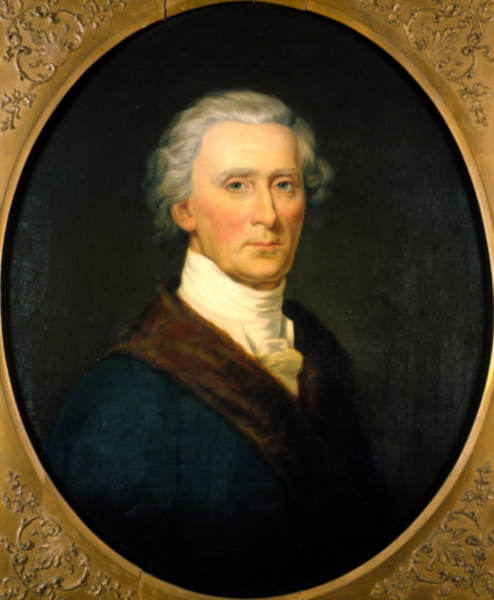

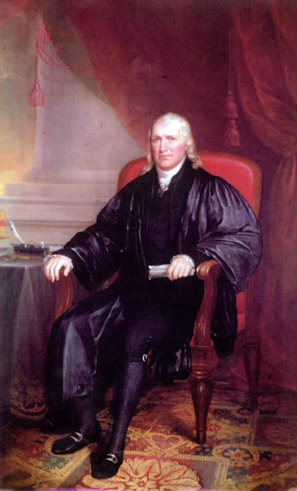
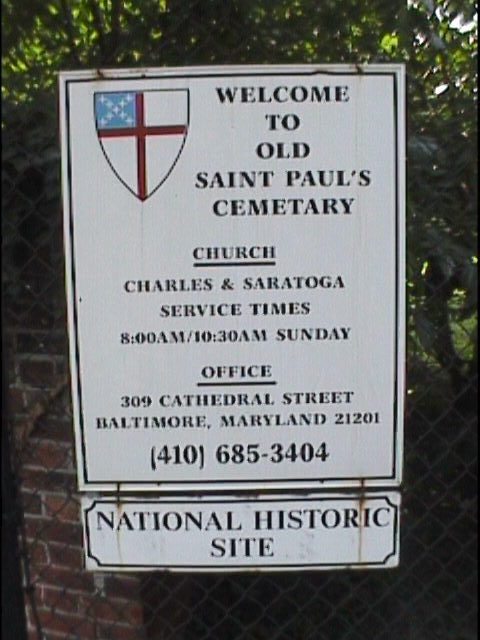





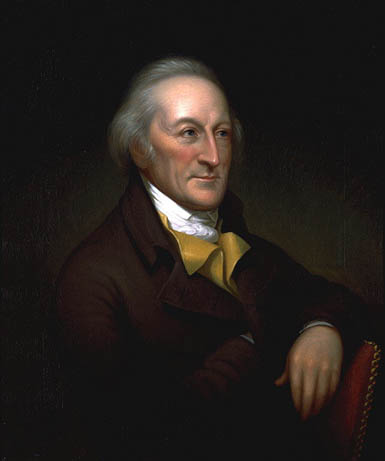


























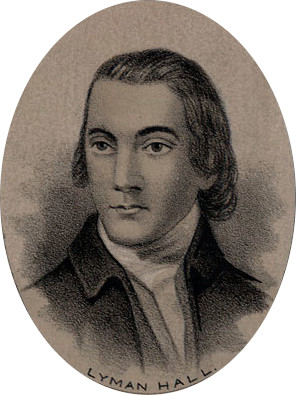
















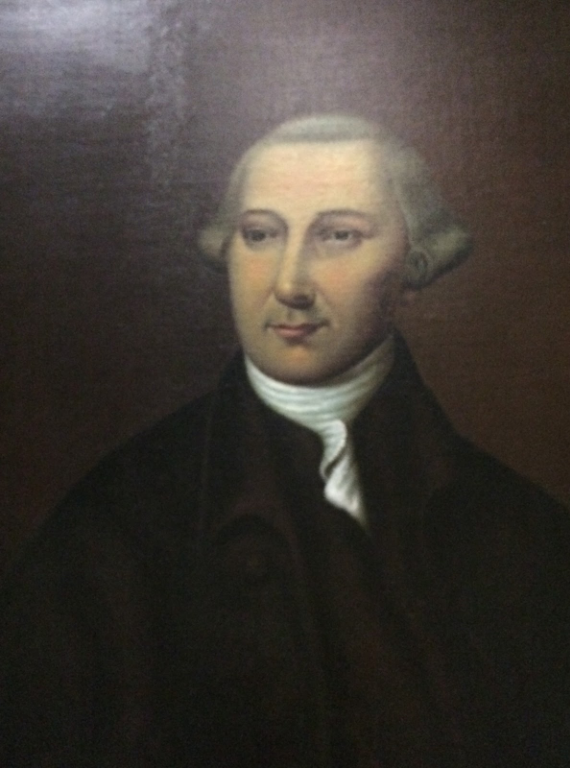
































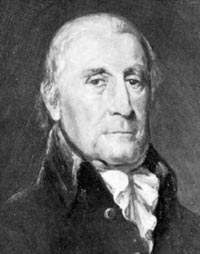








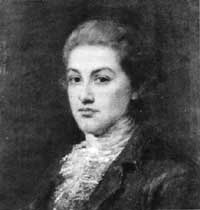



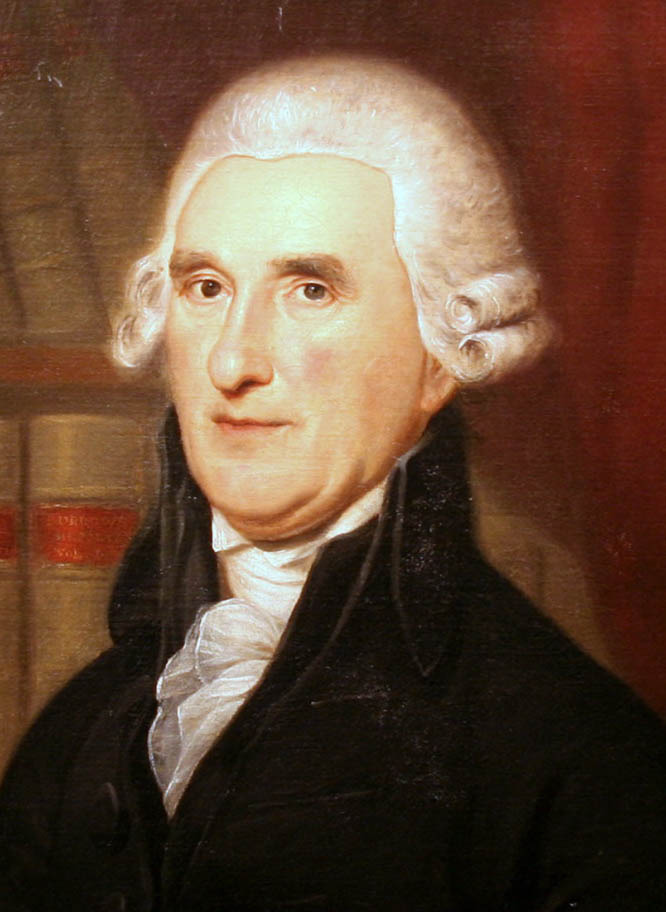





















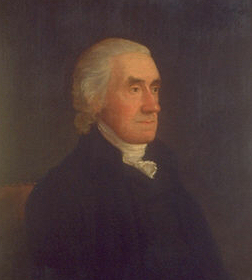







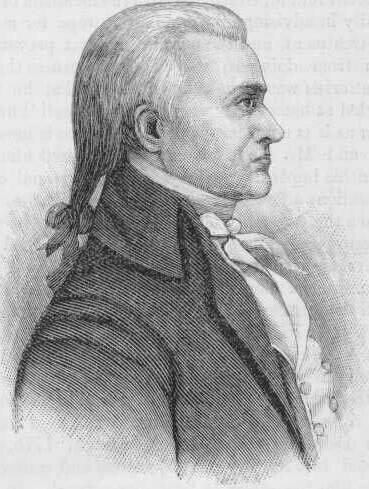









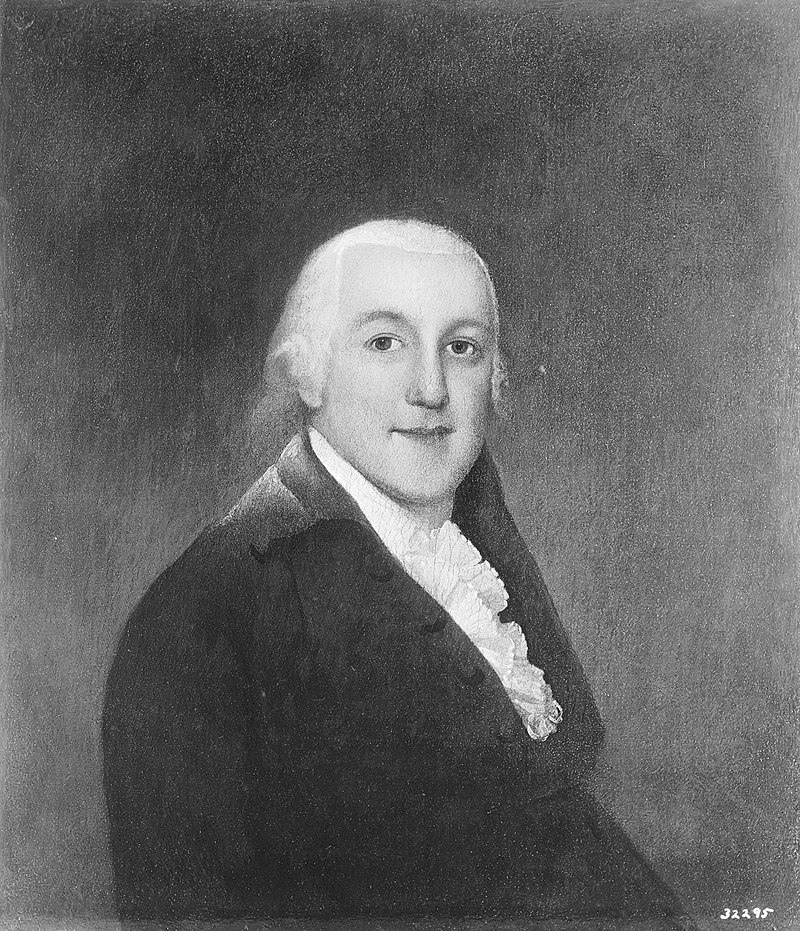








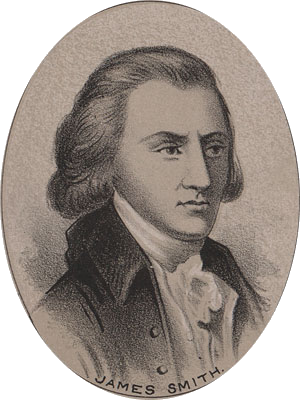




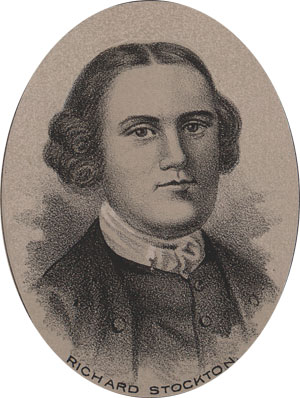









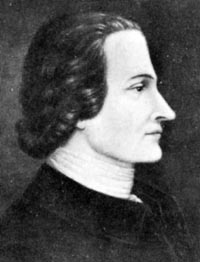



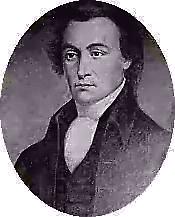





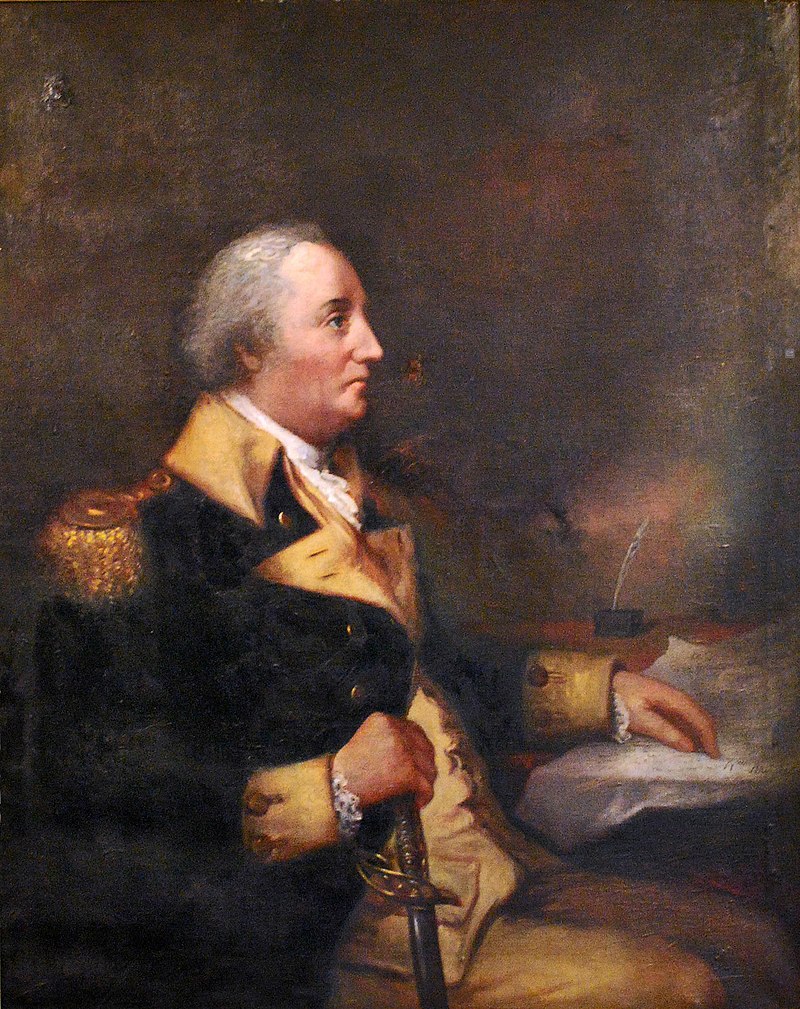

























No comments:
Post a Comment